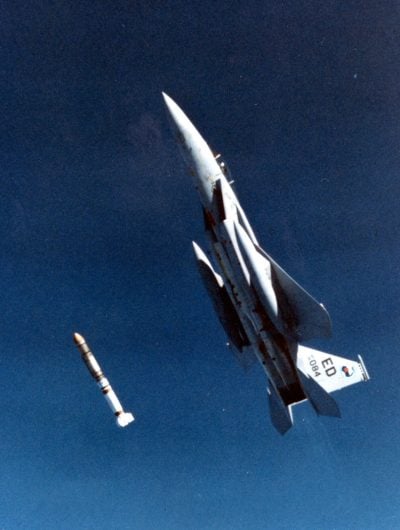Iran: Preparing the ‘Battle Space’
by Alasdair Crooke, Strategic Culture:

Bernard Lewis, a British-American historian of the Middle East, has been formidably influential in America – his policy ideas have towered over Presidents, policy-makers and think-tanks, and they still do. Though he died last year, his baleful views still shape America’s thinking about Iran. Mike Pompeo, for example, has written: “I met him only once, but read much of what he wrote. I owe a great deal of my understanding of the Middle East to his work … He was also a man who believed, as I do, that Americans must be more confident in the greatness of our country, not less”.
The “Bernard Lewis plan”, as it came to be known, was a design to fracture all the countries in the region – from the Middle East to India – along ethnic, sectarian and linguistic lines. A radical Balkanisation of the region. A retired US Army officer, Ralph Peters, followed up by producing the map of how a ‘Balkanised’ Middle East would look. Ben Gurion too had a similar strategic ambition for Israeli interests.
Lewis’s influence however, went right to the top: President Bush was seen carrying articles by Lewis to a meeting in the Oval Office soon after September 11, and only eight days after the attacks on the World Trade Center and the Pentagon, Lewis was briefing Richard Perle’s Defence Policy Board, sitting next to his friend Ahmed Chalabi, the leader of the Iraqi National Congress. At that key meeting of a board highly influential with the Defence Secretary Donald Rumsfeld, the two called for an invasion of Iraq.
Lewis seeded too the broader idea of a backwards-looking Muslim world, seething with hatred against a modernising and virtuous West. It was him, and not Samuel Huntington, who coined the phrase ‘clash of civilisations’ – implying further, that Islam and the West are embroiled in an existential battle for survival.
Through the Evangelical prism of today’s policy-makers, such as Pompeo and Mike Pence, this dark prognostication has metamorphosed from a civilisational ‘clash’ into the cosmic battle of good and evil (with Iran particularly pinpointed as the source of cosmic evil in today’s world).
This is the key point: Bringing regime change to Iran – the primordial threat, in Lewis terms – was always a Lewis fantasy. “Should we negotiate with Iran’s ayatollahs?” Henry Kissinger asked him on one occasion; “Certainly not!” came Lewis’ uncompromising retort. The overall stance that America should adopt to the region was presented in a nutshell to Dick Cheney: “I believe that one of the things you’ve got to do to Arabs is hit them between the eyes with a big stick. They respect power”. This Orientalist advice naturally applied ‘in spades’ to Iran and its ‘Ayatollahs’, Lewis held: “The question we should be asking is why do they neither fear nor respect us?”.
Well, now, inspired by his intellectual hero (Lewis), Pompeo, together with Richard Perle’s PNAC colleague, John Bolton, seem to be itching to try it, using the Lewis recipe of ‘hitting Iran between the eyes with a big (sanctions) stick’.
We have been here before. The US did not just leaf through Lewis’ books, as it were; it has been acting on it for decades. As early as the 1960s, Lewis had published a book which picked up on the potential vulnerabilities, and therefore the potential use, of religious, class, and ethnic differences as the means to bring an end to Middle Eastern states.
Seymour Hersh, writing in 2008, reported that:
“Late last year [2007], Congress agreed to a request from President Bush to fund a major escalation of covert operations against Iran, according to current and former military, intelligence, and congressional sources. These operations, for which the President sought up to four hundred million dollars, were described in a Presidential Finding signed by Bush, and are designed to destabilize the country’s religious leadership. The covert activities involve support of the minority Ahwazi Arab and Baluchi groups and other dissident organizations …
“Clandestine operations against Iran are not new. United States Special Operations Forces have been conducting cross-border operations from southern Iraq … since last year. But the scale and the scope of the operations in Iran, which involve the CIA, and the Joint Special Operations Command (JSOC), have now been significantly expanded, according to the current and former officials. Many of these activities are not specified in the new Finding, and some congressional leaders have had serious questions about their nature”.
And such operations just expanded further – as the present head of CIA, Gina Haspel, has confirmed, she is shifting Agency resources to focus on Russia and Iran. And the US has been assiduously planting its military bases at points that abut on Iran’s ethnic minorities.
So what is the ‘end game’? Is it US election hype, and intended principally for domestic consumption? Is it just to contain and weaken Iran? Is it to force Iran to negotiate a ‘better’ JCPOA? Or is it to trigger regime change?
Well, it looks like this: Pompeo has refused to renew two key US sanctions waivers (besides the various oil waivers). These two waiver-refusals look very much like the veritable ‘smoking gun’ – pointing to Pompeo and Bolton’s true intent. One withdrawn waiver is for Iran’s export of low enriched uranium, and the other retraction is for the export of ‘heavy water’ from the Arak reactor.
The point is that under the JCPOA, Iran is not permitted to accumulate either substance beyond 300 Kilos and 300 litres, respectively. So Iran is compelled by the Accord to export any potential surplus which might breach these limits. The former goes to Russia (in return for raw yellow-cake), and the latter is stored in Oman.
Let us be very clear: There is absolutely no nuclear benefit to Iran from these exports. They serve only the interests of those who are signatories to the JCPOA. They are JCPOA ‘housekeeping’ items – i.e. they serve only those who advocate non-proliferation of nuclear-related materials. The export is envisaged by the Accord, and is demanded of Iran.
If these exports represent precisely the working of the nuclear agreement, why then would Pompeo refuse to renew the waivers to such a structural component to non-proliferation? They are of no economic significance per se.
Read More @ Strategic-Culture.org
Loading...



